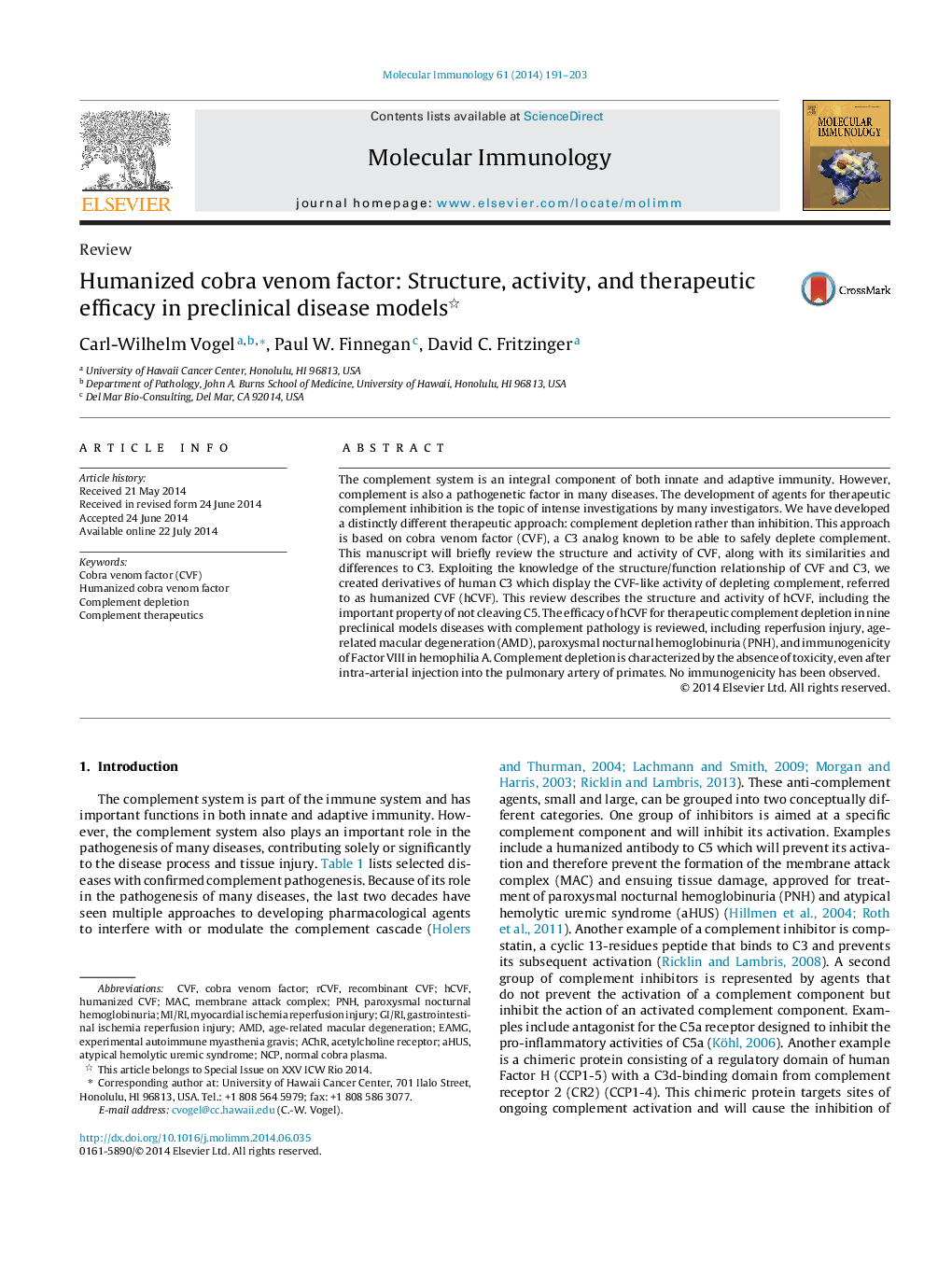| Article ID | Journal | Published Year | Pages | File Type |
|---|---|---|---|---|
| 5916870 | Molecular Immunology | 2014 | 13 Pages |
Abstract
The complement system is an integral component of both innate and adaptive immunity. However, complement is also a pathogenetic factor in many diseases. The development of agents for therapeutic complement inhibition is the topic of intense investigations by many investigators. We have developed a distinctly different therapeutic approach: complement depletion rather than inhibition. This approach is based on cobra venom factor (CVF), a C3 analog known to be able to safely deplete complement. This manuscript will briefly review the structure and activity of CVF, along with its similarities and differences to C3. Exploiting the knowledge of the structure/function relationship of CVF and C3, we created derivatives of human C3 which display the CVF-like activity of depleting complement, referred to as humanized CVF (hCVF). This review describes the structure and activity of hCVF, including the important property of not cleaving C5. The efficacy of hCVF for therapeutic complement depletion in nine preclinical models diseases with complement pathology is reviewed, including reperfusion injury, age-related macular degeneration (AMD), paroxysmal nocturnal hemoglobinuria (PNH), and immunogenicity of Factor VIII in hemophilia A. Complement depletion is characterized by the absence of toxicity, even after intra-arterial injection into the pulmonary artery of primates. No immunogenicity has been observed.
Keywords
Related Topics
Life Sciences
Biochemistry, Genetics and Molecular Biology
Molecular Biology
Authors
Carl-Wilhelm Vogel, Paul W. Finnegan, David C. Fritzinger,
